Le Roy and Visser hold Town Hall to discuss SAO with students
The students from the #SaveSAO group sat in the front row of the Chapel. They raised many of the questions throughout the meeting.
Approximately 150-250 people showed up at Calvin’s Chapel Tuesday night, and over 700 watched on the livestream, to hear the administrators remarks concerning the ambiguous fate of SAO.
The crowd consisted of students, faculty and alums, including Professor Emeritus Nicholas Wolterstorff and student senate president Edgar Aguilar. Music from bands hosted by SAO, such as fun. and Sufjan Stevens, played as participants walked in, some of whom were there as early as 6:30.
Before the meeting, President Le Roy told Chimes he had positive expectations for the town hall, saying, “Calvin students are thoughtful and articulate, and I look forward to hearing that.”
Le Roy opened by stating, “I am thankful for your willingness to engage in a dialogue that will help us to know and understand.” He noted that the work to be done is difficult and requires thoughtfulness and prayer. He admitted that he can more effectively do his job when he knows the thoughts of students and faculty.
After a short prayer, Le Roy gave the floor over to Sarah Visser, the vice president for student life, who was out of the country when the SAO news broke. Visser assured the audience that she has been and is listening. “What I want you to know is I’ve read everything I’ve received.” She also said, “Never once in the conversation was my decision about eliminating SAO. I actually see SAO as core to Calvin College.”
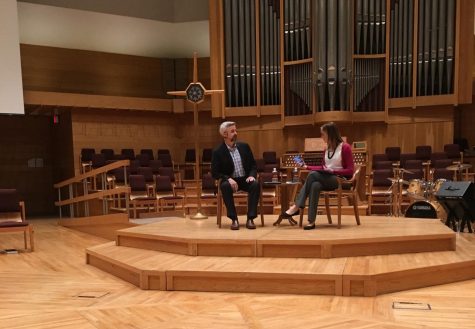
Le Roy and Visser worked together to answer the questions posed to them.
When the floor was opened up to questions, senior Daniel Hickey, an employee of SAO, started the conversation as planned by the #SaveSAO student group. Hickey wanted to clarify the goals that #SaveSAO wanted to accomplish in the town hall.
“This is not going to be a meeting where we vent to you, where we talk it out and end up feeling good,” said Hickey. “This college has taught me that theory and practice are the same thing… If a Reformed engagement with the world, with culture… is as valuable as you say it is, where’s the practice?”
This first question set a tense mood. “We’re coming here as serious individuals, we are going to demand serious answers,” explained Hickey.
Regarding future plans for SAO, Visser wasn’t able to provide specific information. “A lot is still in process, and there are many possibilities,” she said, “I don’t have definitive answers for you on what next year will look like.” Both administrators seemed confident that the mission, and perhaps even the goal, of SAO will not be completely dissolved.
In response to a question about endowing SAO, Le Roy noted that offices such as SAO are always put into such conversations and that they are “listening to the areas that might result in a gift.” Visser said $2.5 million would be necessary to endow SAO. Two professors suggested short terms methods of keeping SAO running until an endowment could be achieved.
A few times the conversation came around to Ken Heffner, the director of SAO. Visser and Heffner have been in conversation on these matters for some time, with some discussion about a new position that would combine his work with another office. Heffner declined the offer to stay on and work in the position resulting from the reorganization of the program.
Among the concerns voiced by attendees, many were concerned with the potential effect this decision could have on bringing in new students as well as how much of Calvin’s identity will be lost if this program is substantially reduced.
Many of those who raised questions at the meeting recognized that budget cuts are necessary and that the college has to make sacrifices. Many details regarding the future of SAO remain unclear and uncertain.
When asked about a timeline for more definite decisions concerning the Cultural Discerner program, for instance, Visser stated she would like to have clarity as soon as possible, promising to have those answers “before the end of the school year.”
Some audience members passionately provided comments. Current staff member, though a former SAO employee, John “Moose” Williamson was the last to speak. Pacing up and down the aisle of the pew, Williamson voiced discontent. “I think the SAO is the best thing about Calvin,” he said. His time at the mic was met with multiple bouts of applause and cheering. He also expressed that in order for the program to be done right a full time position would be necessary, a point that Visser noted as being heard.
Le Roy wrapped the meeting up around 8:30. As people dispersed, Le Roy said to Chimes that the range of expressions was expected and that it was good to get into a room together, face to face, and have a conversation that left him hopeful for the future of Calvin.
Visser commented to Chimes: “I’m grateful. I am grateful for the ways that students are willing to engage with us.”
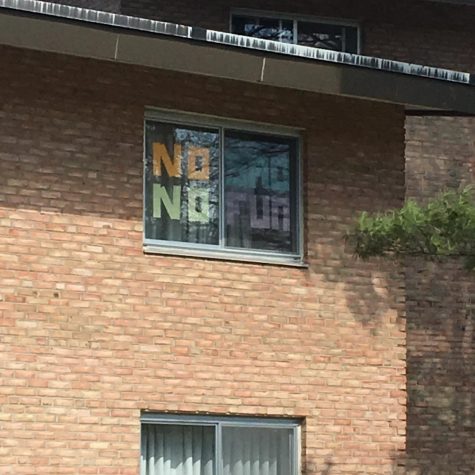
A message written in sticky notes in a window of BHT.
From the student perspective, Molly Vanderwerp, one of the admins for the Facebook page #SaveSAO, said that until they get answers as to the concrete measures that will be made, they are still dissatisfied. Anna Jeffries, also a member of the #SaveSAO student group, seconded this thought, saying, “We’re glad to give voice to concerned students, but we’re still unsatisfied with the way the conversation went.” She expressed that there’s still distrust between students and administration.
First-year student Grace Cole was also dissatisfied with the town hall.
“All I wanted was them to admit they made a mistake,” said Cole, “instead I just felt like it was very euphemistic and I appreciate the effort but I don’t feel like they realize that we’re not gonna stop protesting this. This isn’t gonna stop. We’re not gonna stop caring.”
Edgar Aguilar, student body president, suggested that administration needs to give more people a voice in these conversations about budget cuts. After the town hall, Aguilar sent a follow-up email to Le Roy and Visser requesting them to meet with prominent student voices in the Save SAO movement to shape what the future of SAO would look like.
Sebastian Jala, a student senator, wanted more transparency from the administrators. Jala was impressed by the professors’ questions, though he had hoped that Heffner would say something. Jala was also expecting more questions about the college’s spending priorities, such as the money that is being put into the new Calvin University signs.
Patrick Jonker, a key leader in the #SaveSAO movement, said that he was happy with the turnout and the questions attendants brought, saying “I think that the people stepped up. I think that people here said things that needed to be said. I think people said true things.” However, felt one key question was still left unanswered: “How is this actually going to look different now?” Jonker was unsure of the future of student input in the conversation “I don’t think that they’re truly doing what they say… that they care about student input if they aren’t able to answer that question.”
Chimes will continue coverage on SAO as new information becomes available.
Michelle Hofman, Joshua Polanski, Immanuel Deliyannides, Garrett Strpko, Jake Veenstra, and Yolanda Chow contributed to the reporting of this article.



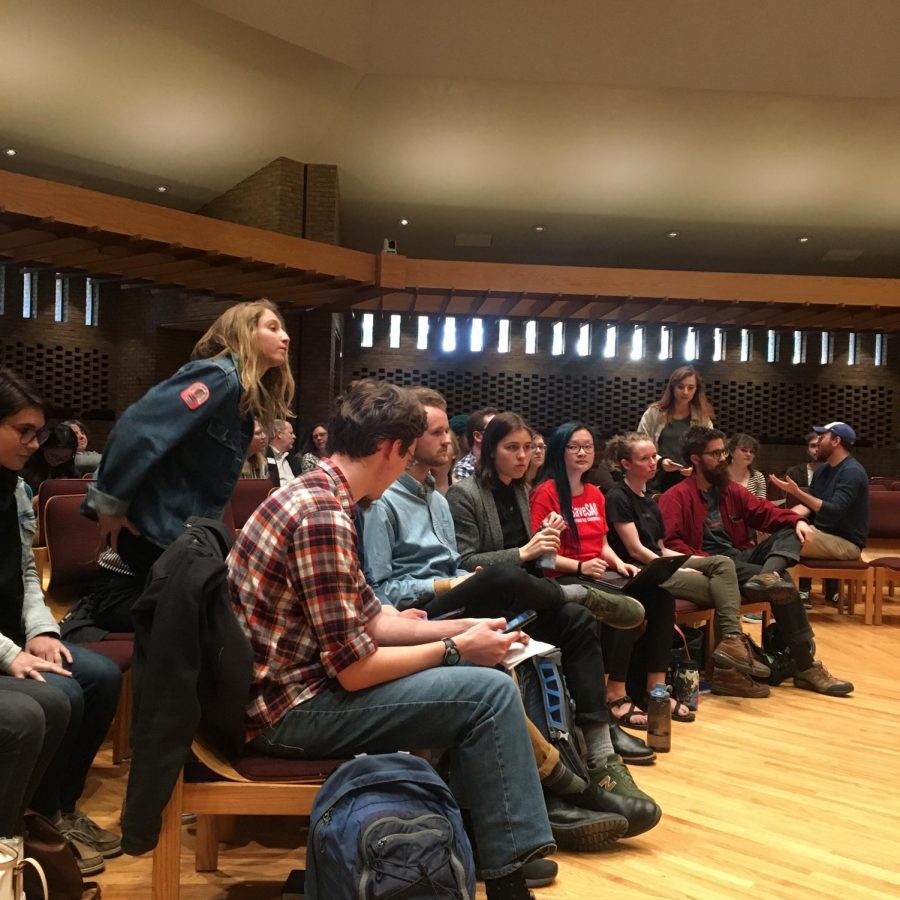
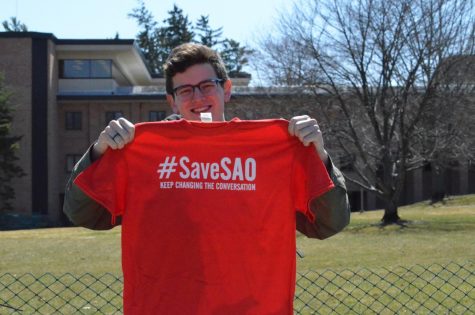
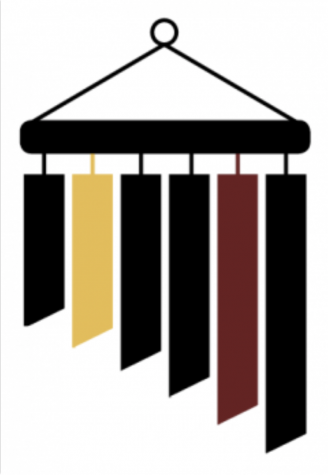

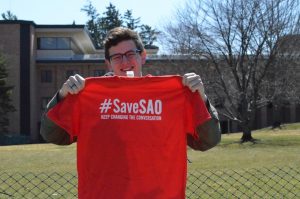
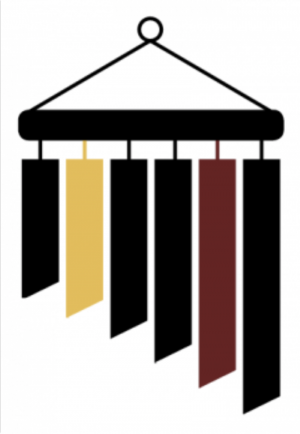

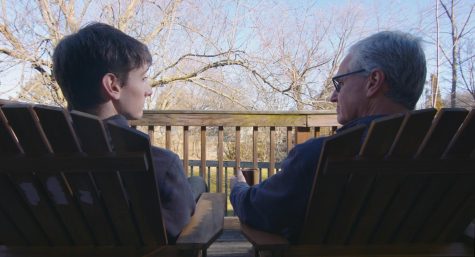
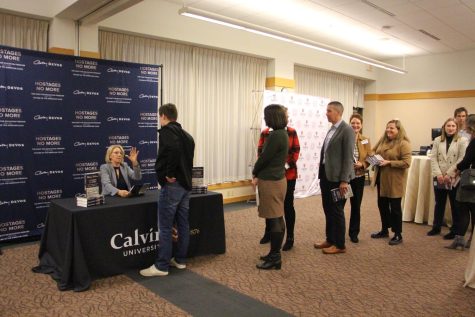
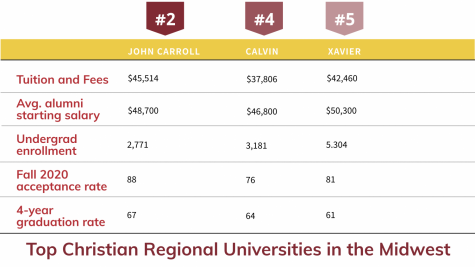
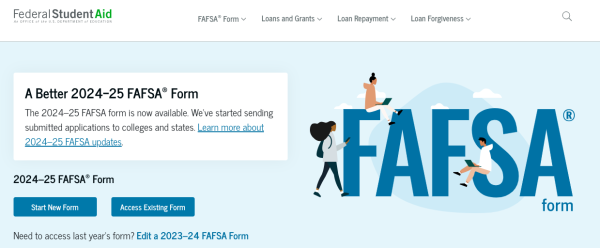




Hannah Butler • Apr 13, 2019 at 9:47 pm
While I understand Jala’s comments about the new university signs, I don’t see how that relates to this particular funding issue. The money given to fund the new signage has been specified for that purpose. When the new signs were first put up, I wrote an article to follow up on this expense. The real question is about student life’s funding rather than Calvin as a whole. Just as we want our money to specifically support the SAO, some donors want to specifically fund the upkeep of Calvin’s facilities.